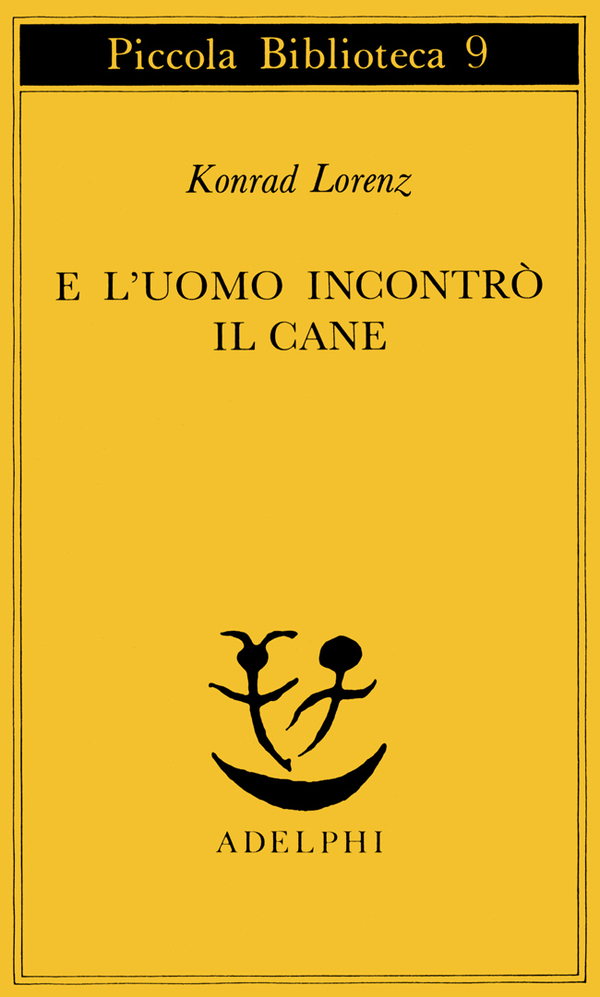Konrad Zacharias Lorenz (German pronunciation: [ˈkɔnʁaːt ˈloːʁɛnts] (listen); 7 November 1903 – 27 February 1989) was an Austrian zoologist, ethologist, and ornithologist. He shared the 1973 Nobel Prize in Physiology or Medicine with Nikolaas Tinbergen and Karl von Frisch. He is often regarded as one of the founders of modern ethology, the study of animal behavior. He developed an approach that began with an earlier generation, including his teacher Oskar Heinroth.Lorenz studied instinctive behavior in animals, especially in greylag geese and jackdaws. Working with geese, he investigated the principle of imprinting, the process by which some nidifugous birds (i.e. birds that leave their nest early) bond instinctively with the first moving object that they see within the first hours of hatching. Although Lorenz did not discover the topic, he became widely known for his descriptions of imprinting as an instinctive bond. In 1936 he met Tinbergen, and the two collaborated in developing ethology as a separate sub-discipline of biology. A Review of General Psychology survey, published in 2002, ranked Lorenz the 65th most cited scholar of the 20th century in the technical psychology journals, introductory psychology textbooks, and survey responses.Lorenz's work was interrupted by the onset of World War II …
Konrad Lorenz
Dettagli autore
- Alias:
-
コンラート・ローレンツ, Kanglade-Luolunci, K. Z. Lorenz, e 52 altri
Κόνραντ Λόρεντς, കോൺറാഡ് ലോറൻസ്, 康拉德·洛伦兹, Konrad Lorenc̕i, K. Lorenz, קונרד זכריאס לורנץ, Laolunzi, קונראד זכריאס לורנץ, Konrad Lorencʹ, كونراد لورنتس, Konrad Z. Lorents, Konrad Lorent͡s, Конрад Лорэнц, .. Laolunzi, კონრად ლორენცი, 康拉德·劳伦兹, Lao lun zi, Kanglide Laolunzi, Konrant Lorents, کنراد لورنتز, 콘라트 로렌츠, Konrad Lorenz, K'olladŭ Rorench'ŭ, Konrad Lorent︠s︡, K'ollat'ŭ Rorench'ŭ, Konrad Zacharias Lorenz, Конрад Лоренц, .. Rōrentu, קונרד לורנץ, Konrāto Rōrentu, کونراڈ لورینز, Лоренц, קונראד זאכאריאס לורנץ, コンラート レーレンツ, Lorenz, Կոնրադ Լորենց, קונרד זכריס לורנץ, Konrad Z. Lorenz, Qonrād Z. Lōrenṣ, コンラート ローレンツ, Conradus Lorenz, Konrāto Rōrentsu, Konrāds Lorencs, Kanglade Luolunci, K ローレンツ, کونارڈ لونٹز, Konrad Lorenc, K. Rōrentsu, קונראד לורנץ, Конрад Лёрэнц, Kang la de Luo lun ci, コンラート ロレンツ - Nascita:
- 11 Novembre 1903
- Morte:
- 11 Novembre 1989
Collegamenti esterni
Konrad Zacharias Lorenz (German pronunciation: [ˈkɔnʁaːt ˈloːʁɛnts] (listen); 7 November 1903 – 27 February 1989) was an Austrian zoologist, ethologist, and ornithologist. He shared the 1973 Nobel Prize in Physiology or Medicine with Nikolaas Tinbergen and Karl von Frisch. He is often regarded as one of the founders of modern ethology, the study of animal behavior. He developed an approach that began with an earlier generation, including his teacher Oskar Heinroth.Lorenz studied instinctive behavior in animals, especially in greylag geese and jackdaws. Working with geese, he investigated the principle of imprinting, the process by which some nidifugous birds (i.e. birds that leave their nest early) bond instinctively with the first moving object that they see within the first hours of hatching. Although Lorenz did not discover the topic, he became widely known for his descriptions of imprinting as an instinctive bond. In 1936 he met Tinbergen, and the two collaborated in developing ethology as a separate sub-discipline of biology. A Review of General Psychology survey, published in 2002, ranked Lorenz the 65th most cited scholar of the 20th century in the technical psychology journals, introductory psychology textbooks, and survey responses.Lorenz's work was interrupted by the onset of World War II and in 1941 he was recruited into the German Army as a medic. In 1944, he was sent to the Eastern Front where he was captured by the Soviet Red Army and spent four years as a German prisoner of war in Soviet Armenia. After the war, he regretted his membership in the Nazi Party.Lorenz wrote numerous books, some of which, such as King Solomon's Ring, On Aggression, and Man Meets Dog, became popular reading. His last work "Here I Am – Where Are You?" is a summary of his life's work and focuses on his famous studies of greylag geese.

